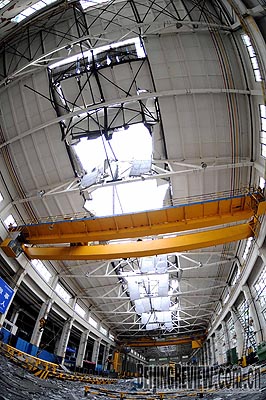|

Numbers of the Week
1 trillion yuan
Sichuan Province's direct economic losses incurred in the wake of the massive Wenchuan earthquake surmounted 1 trillion yuan ($143 billion) by June 28, according to Huang Xiaoxiang, Vice Governor of the province
43%
China's social security fund reported total operating income of 145.35 billion yuan ($21 billion) for 2007, with a return rate of 43 percent, largely thanks to last year's stock market spree.
|
TO THE POINT: Many of China's shoe manufacturers are closing up shop because of the appreciation of the yuan and slumping global demand. International financial uncertainties prompted China's premier to call for stabilizing the U.S. dollar. Mainland stock markets showed no signs of recovery from this round of global financial market recession. Share prices of heavily weighted stocks such as China Merchants Bank and Ping An Insurance of China lost 20-30 percent of their value after they announced major overseas acquisitions. Some mainland investors have turned to futures trading in light of the bearish stock markets. Many Chinese hotels are finding they have excessive supplies of rooms they cannot fill. Hougu coffee wants to become the number-one domestic coffee brand.
By LIU YUNYUN |
Shoemakers' Conundrum
Nearly half of the shoemakers in south China's Guangdong Province have abandoned their businesses because of dismal sales, resulting from the appreciation of the yuan and the high cost of raw materials.
Data from Guangzhou Customs shows that Guangdong exported products totaling 1.35 billion yuan ($193 million) during the first five months of the year, down 15.5 percent from the same period in 2007. More notable was that shoe sales in the Pearl River Delta, the nation's shoemaking center, dropped 25.7 percent.
The Guangzhou Daily reported that weak sales forced nearly half the province's shoe manufacturers out of business. During first the five months of the year, there were about 2,400 shoe manufacturers in the Pearl River Delta, half of the number during the same period in 2007. Some have quit the business altogether, while others have moved their factories to less expensive areas.
The shoemakers also are suffering from the fallout of the U.S. subprime mortgage crisis, a major trigger of the current global economic downturn, which has reduced consumer purchasing power. Meanwhile, the possible extension of EU's anti-dumping charges against Chinese shoemakers also has forced some to abandon their businesses.
As small shoemakers are increasingly closing their doors, large ones have been picking up the slack. The Guangzhou Daily quoted an
| 